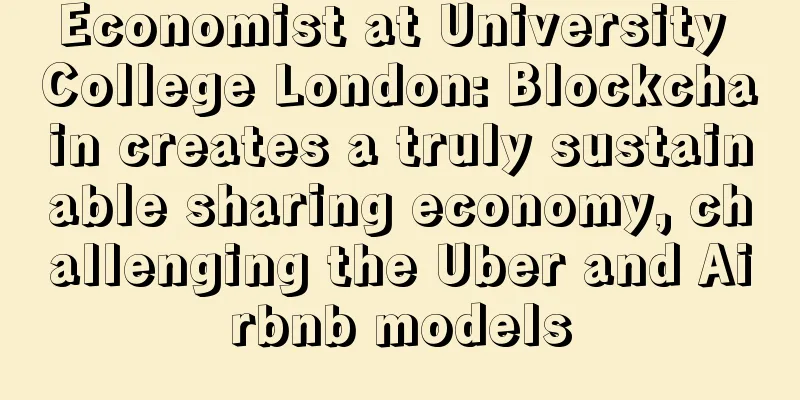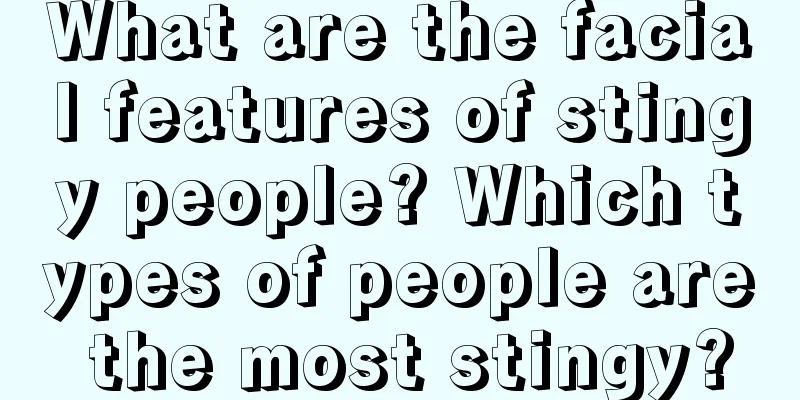Economist at University College London: Blockchain creates a truly sustainable sharing economy, challenging the Uber and Airbnb models

|
The hugely popular Uber and Airbnb are often considered the most successful examples of the emerging ‘sharing economy.’ The buzzword ‘people as a service’ describes their business models very well, and both companies have attracted billions of dollars in funding and have become instant darlings of investors. However, a recent paper jointly published by economists from the University College London Blockchain Technology Center and the IMPACT Institute, " However, the paper’s authors, Paolo Tasca, director of the University College London Centre for Blockchain Technologies, and Mihaela Ulieru, president of the IMPACT Institute, argue that distributed ledger technology can create true sharing economy markets without the need for intermediaries and central hubs, with all transactions between consumers and service providers being routed through a decentralized peer-to-peer (P2P) network. Mihaela Ulieru (left) and Paolo Tasca (right) Uber and Airbnb present a very attractive front end to consumers, offering faster, cheaper and better services than the traditional model, and providing services through complex but easy-to-use apps. For consumers, the possibility of purchasing services directly from individual providers gives consumers the illusion that Uber and Airbnb are decentralized p2p networks. In fact, both Uber and Airbnb are centralized systems because transactions between individual consumers and service providers are routed through infrastructure, control centers, and software that belong to the platform owner. In addition to collecting fees, the platform owner has complete control over this network of services. In particular, they are able to impose their own conditions on value creators—drivers and hosts—and may ultimately alienate value creators, who will eventually be left without consumers. Tasca and Ulieru noted:
The two economists pointed out that another disadvantage of the centralized sharing economy is its vulnerability to regulatory actions, because when centralized sharing economy operators reach the level of development that is "too big to fail", they will continue to conflict with regulations and policies from all sides. Envisioning a true sharing economyTasca and Ulieru are curious:
Among the options proposed in the paper, the possibility of designing a blockchain-based platform to route users to services over an open decentralized network seems particularly relevant. The early stages of the Internet itself provide a good example of how open decentralized networks can create a variety of services. The two economists pointed out:
Finally, centralized sharing economy platforms controlled by a single owner may be replaced by decentralized cooperatives that issue blockchain-based shares or crypto-equity tokens to give workers and stakeholders ownership or membership rights. In other words, Uber is not controlled by Uber, but by the public, and the revenue after expenses is distributed to the members of the cooperative, who also control the platform and its decisions. Tasca and Ulieru believe that in the not too distant future, we will organize our economic lives around P2P decentralized sharing economy platforms, which may significantly reduce the income distribution gap, democratize the global economy, and create a more ecologically sustainable society. They concluded:
|
>>: Ethereum will have its first wallet with a WeChat-like interface
Recommend
Palmistry
I think everyone knows that "hands" are...
Palmistry for marriage: Are people with many marriage lines necessarily unfaithful?
The marriage line is the short thin line below the...
El Salvador’s President: Bitcoin wallets in El Salvador will be 100% operational in the next few days
El Salvador’s Chivo cryptocurrency wallet will so...
Is it good for a woman with a mole on her eye to have a good fate? What does a mole on the eye mean?
Although having a mole in the eye is not common, ...
How to read the four marriage lines
How to interpret if there are four marriage lines...
Is it good for a woman to have a mole on her left ear?
In mole physiognomy, it is generally believed tha...
Segregated Witness encounters another obstacle, what is the reason for the surge in Litecoin computing power?
The implementation of Litecoin Segregated Witness...
Is it good to have a square face? A person with a good personality
In real life, a person's character can often ...
How to read a man's nose
The nose has a very high status in physiognomy. A...
Bitcoin Vietnam welcomes the first Vietnamese merchant to accept Bitcoin payments
Bitcoin Vietnam is the first Bitcoin trading plat...
There is a mole in the middle of the throat. Is it good for a woman to have a mole in the middle of her throat?
Moles are located in different places on each per...
How to tell fortune by reading girls' palms
The destiny of a person's life can be seen fr...
Is it good for a woman to have a wide and deep philtrum? What does a deep and shallow philtrum mean for a woman?
The philtrum is the "center of gravity"...
Why are some banks reluctant to use Bitcoin, while this bank is keen on it?
Japanese banking giant Mizuho Financial Group is ...
After the layoffs, Bitmain is accelerating its pace to return to the "main channel"
With the economic downturn, there have been news ...









